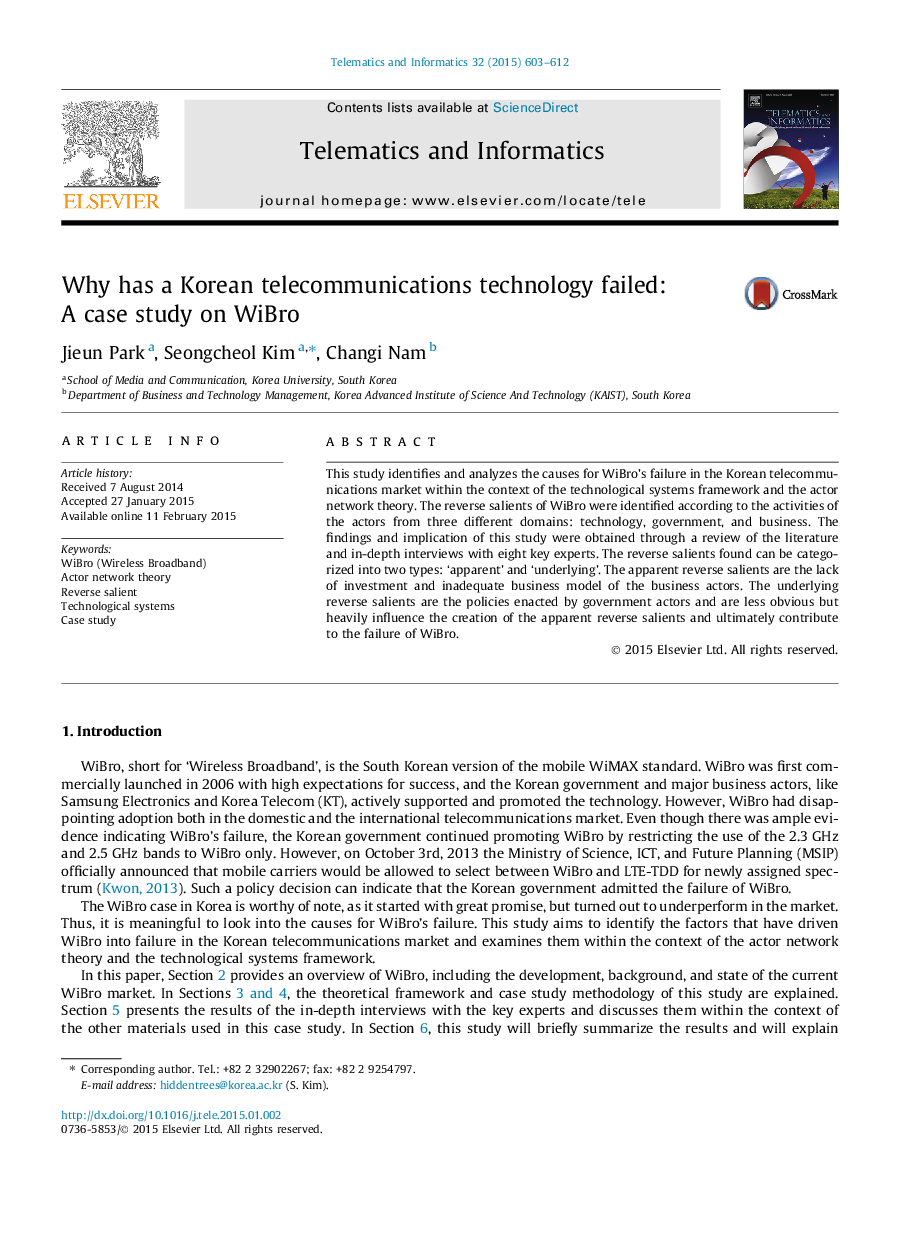| Article ID | Journal | Published Year | Pages | File Type |
|---|---|---|---|---|
| 466973 | Telematics and Informatics | 2015 | 10 Pages |
•WiBro is the Korean version of the mobile WiMAX standard.•This study analyzes the causes for WiBro’s failure in the Korean telecommunications market.•The apparent reverse salients are the lack of investment and inadequate business model.•The underlying reverse salients are the policies enacted by government actors.
This study identifies and analyzes the causes for WiBro’s failure in the Korean telecommunications market within the context of the technological systems framework and the actor network theory. The reverse salients of WiBro were identified according to the activities of the actors from three different domains: technology, government, and business. The findings and implication of this study were obtained through a review of the literature and in-depth interviews with eight key experts. The reverse salients found can be categorized into two types: ‘apparent’ and ‘underlying’. The apparent reverse salients are the lack of investment and inadequate business model of the business actors. The underlying reverse salients are the policies enacted by government actors and are less obvious but heavily influence the creation of the apparent reverse salients and ultimately contribute to the failure of WiBro.
